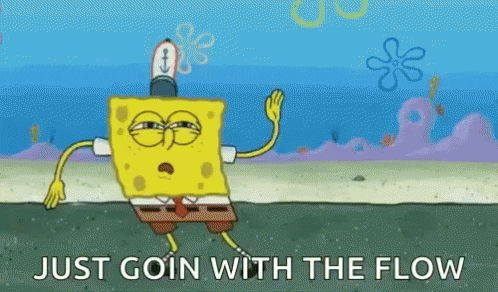One Year Later
Good morning. The NBA is back on Thursday. That’s it. That’s the tweet. Until then, you can catch up on Crashing Up and share it with your smartest friends. Seems like a pretty good way to pass the time!
If you’re reading this but haven’t subscribed, you can sign up here:
Already subscribed and want to put some friends on?
A year ago today, I published my first book — Adversity to Advantage: How to Overcome Bullying & Find Entrepreneurial Success. It examines the stories and psychology behind a group of highly diverse and successful entrepreneurs, all of whom were bullied in adolescence. I wrote this book in an effort to uncover how these entrepreneurs were able to shift their mindset to leverage the raw emotion and lessons learned from their negative experiences and turn themselves into examples of entrepreneurial excellence. To mark the one year anniversary, I will be sharing some of my favorite passages from the book. Note that these have been slightly edited and shortened for the sake of this newsletter.
🌀Find Your Flow
For the last couple of years, I’ve spent the bulk of my free time studying and learning about successful entrepreneurs. It takes a certain type of person to commit to a career of ambiguity, so I’ve always been interested in one specific question: When the times were tough, debt was rising and revenue was low (or non-existent), were these entrepreneurs truly happy?
Surely money doesn’t buy happiness, but it’s safe to say that many people, myself included, would much rather have a secure, steady stream of income than be trapped in a cycle of debt, struggling to make ends meet.
What kept these special individuals like Richard Branson and Mark Cuban motivated and content even when the money wasn’t flowing in? Was it the passion behind their grand vision and or were they just flat-out crazy?
When speaking with one entrepreneur for the book, he defined his version of a successful entrepreneur as someone who is able to find their “flow,” a theory created by Czech psychologist Mihaly Csikszentmihalyi.
“The best moments in our lives are not the passive, receptive, relaxing times…the best moments usually occur if a person’s body or mind is stretched to its limits in a voluntary effort to accomplish something difficult and worthwhile,” Mihaly writes in his book Flow: The Psychology of Optimal Experience published in 1990.
So, what is flow exactly?
Csikszentmihalyi defines flow as “a state in which people are so involved in an activity that nothing else seems to matter; the experience is so enjoyable that people will continue to do it even at great cost, for the sheer sake of doing it.” While every single entrepreneur may not be motivated solely by his or her flow, it is surely a driving force that propels continuous motivation, even when the times get tough. It is the reason they remain content, even in the harshest of conditions.

It is important to note that “flow” is not a tangible item. It is a state of being. You can be in “flow” at a certain place, during a specific activity, or in a combination of the two. Every person’s flow is unique and personal. Regardless of what’s going on in your life, if you focus on this thing, time seems to freeze. Your worries begin to dissipate and nothing else matters. Without trying new things, growth is unattainable. Something you love today, you may hate tomorrow, and that’s okay. Passions and flows evolve, as does your identity. By defining who you are, stepping out of your comfort-zone and establishing self-confidence early on, you will put yourself in a position to find success in your flow, whatever it may be.
🚫The Power of “No”
Last week, I covered why it’s important to stop apologizing. This week, we will dive into how learning the power of the word “no” can change your life.
My friend once told me, “Your inability to say no will be the death of you.”

As kids we often make decisions based on the desire to fit in, driven by our need for acceptance. This is the root cause of peer pressure and many poor childhood decisions everyone can relate to. Yet the inability to say no can also boil down to an underlying fear of conflict and disappointing others.
Everyone has a different threshold for this fear and desire. Where the “ask” ranks on this threshold usually determines the way we make decisions. But for someone who has been bullied, the threshold is often very low. They may still long to fit in, fear conflict, and feel the need to please others, even though they have experienced such terrible mistreatment. These fears may even place us at the crossroads of our ethics and morals.
The combination of the three makes it incredibly hard to say no to too many “asks.” This ability to say “no” must be cultivated and built up gradually, but is absolutely vital to both the mental health and success of an entrepreneur or professional.
Time is our golden asset. Aside from perfect health, this the only other thing that money truly can’t buy. Saying yes to things we don’t want to do is a waste of our beloved time. Next time you are asked to do something you are unsure of, ask yourself a few questions:
•Do I truly want to do this?
•Would I enjoy spending my time doing something else?
•Has this person helped me in the past?
•Can anyone else besides me do this?
•What will I gain from doing this?
Learning the power of no can be very liberating. Eliminating unwanted activities from your life and replacing them with things you enjoy can significantly affect your overall happiness. Once you begin to say no, you will quickly see that much of the fear regarding conflict and disapproval is unwarranted. In fact, saying no can actually earn you respect from your peers, as it demonstrates a comfortability with judgment.
⏳The Quarter Life Crisis
With the amount time we spend on social media, self-comparison is nearly inevitable. Even when we know a lot of the “young success” we see online is staged “for the ‘gram,” it’s hard not to feel behind the curve. More so, the false depictions of levity and happiness can make us feel that not only are we not successful, but we are also unhappier than our peers or colleagues.
In 2017, Dr. Oliver Robinson, a Senior Lecturer in Psychology at the University of Greenwich teamed up with First Direct Bank to survey over 2,000 British 25-35-year olds about stress in their lives. The study found that over 56 percent described being in a “quarter-life crisis,” often referred to a time in early adult life where one spends his or her time heavily stressing and questioning their success, impact on the world, and overall happiness.
In 2018, a LinkedIn study revealed that over 75 percent of twenty-five to thirty-three-year-olds have already experienced a quarter-life crisis with 61 percent saying that finding a career they are passionate about is the main cause. Nearly half felt they weren’t earning enough.
The typical sufferer is “highly driven and smart but struggling because they feel they’re not achieving their potential or feel they’re falling behind,” says Nathan Gehlert, PhD, a Washington, DC psychologist. Ironically enough, while our intentions are pure and our worries are fueled by our constant ambition, this mindset is incredibly detrimental and inhibiting to our overall success.
In 2018, the US Census Bureau and a group of professors from MIT and Northwestern gathered and analyzed the data of 2.7 million start-ups who hired one employee between 2007 and 2014. First, they concluded that the average starting age for successful entrepreneurs of high growth start-ups is forty-one years old.
When looking further into the 0.1 percent of Silicon Valley tech companies, they found the average founder’s age was forty-five. Those who have had a successful exit via acquisition or IPO started at almost forty-seven years old.
Pretty crazy right?
The study found that starting a company in your forties, fifties, or even sixties drastically improves the odds for success:
•A forty-year-old founder is 2.1 times more likely to found a successful start-up than a twenty-five-year-old.
•A fifty-year-old start-up founder is 2.2 times more likely to found a successful start-up than a thirty-year-old.
•A fifty-year-old founder is 2.8 times more likely to found a successful start-up than a twenty-five-year-old founder.
•A sixty-year-old founder is three times as likely to found a successful start-up than a thirty-year-old founder—and is 1.7 times as likely to found a start-up that winds up in the top 0.1 percent of all companies.
If these statistics aren’t enough to stop you from incessantly comparing yourself to others on LinkedIn or Instagram, here are some more notable success stories:
•Reid Hoffman (LinkedIn), William Proctor (Proctor and Gamble), Gordon Moore (Intel) and Masaru Ibuka (Sony) all started their companies during their mid to late-thirties.
•Charles Geschke (Adobe), Chip Wilson (LuluLemon), Christian Dior and Bernard Marcus (Home Depot) all started their businesses in their forties.
•Joseph Campbell (Campbells Soup), Gary Burrell (Garmin), Henri Nestle (Nestle), and Gordon Bowker (Starbucks) all started their businesses in their fifties.
Bottom-line: You aren’t behind, experience matters, and it’s never to late to start.
Like what you just read and want to read more? Share this newsletter with five friends, shoot me an email and I’ll send you a free copy of the eBook.
You can also follow me on Twitter or visit randymginsburg.com for more writing.
Thanks for reading,
Randy



